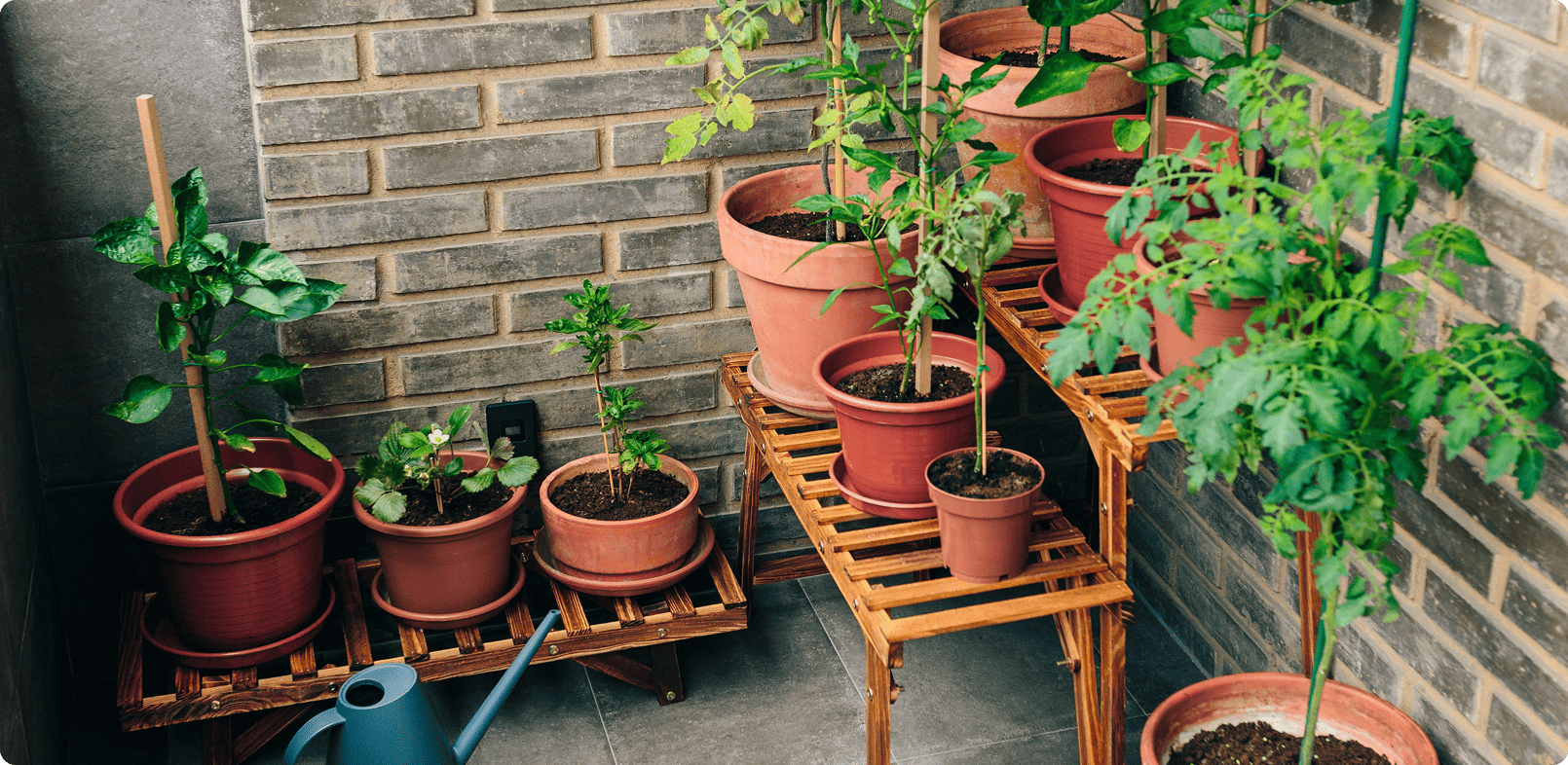
- By: admin
- Comments (0)
- Apr 5
How To Grow A Herb Garden In Small Spaces
So, you’re in the mood to get cooking some yummy, mouthwatering tomato soup. It’s a holiday and the experience can be rewarding. But, a tiny catch. You don’t want to step out in the sun to get the smallest essentials like herbs, that’s when it occurs to you, “What if I have a herb garden?” Think refreshing aroma, irresistible flavours & the ease of having necessary herbs right at your fingertips! Not to forget the immense beauty & aesthetic appeal it’s going to add to your home garden! If you are keen on entering into building a herb garden venture, let us tell you something – your love for herbs is going to outweigh the efforts & it’s all going to be worth it!
You don’t need to invest a huge amount of money or even space for a herb garden, because most herb plants are unique in their way of growing. The ever-increasing prices of fresh herbs make the idea of creating a herb garden all the more doable, right? And alas, the beauty of it all lies in the convenience of having a herb garden – natural goodness, easy accessibility, and impeccable homegrown freshness.
The magic of a thriving herb garden is born by choosing the right kind of herbs suitable for small spaces. As we mentioned earlier, you don’t need to invest a huge space for your new herb garden, smallest spaces such as balconies, windowsill, patio, rooftops can do wonders for the right herb plants! Do pay heed to sunlight needs, and you’re good to go. On average, most herbs require 4-6 hours of sunlight every day. Here’s a small list of herbs that are perfect for smaller spaces to get you started:
- Basil
- Mint
- Parsley
- Chives
- Thyme
- Oregano
Climate Is The Key
Selecting herbs as per the climates that naturally favour their growth is one of the most fundamental factors to keep in mind when growing a herb garden. Mediterranean herbs such as Basil and Oregano flourish in hot, warm and sunny environments. Whereas, Thyme, Chives, Parsley, and Mint are apt for cooler spaces. Both these climatic conditions need to be moderate, as extreme conditions can end up causing damage to these little lives.
Herb Companions
Pair work makes the dream work for the herb garden. When planted together, certain herbs & plants grow to be more flavoursome & rich in nutrients while aiding in repelling pests, all thanks to their variety of benefits. The examples below will make this idea crystal clear for you:
- Basil & Tomatoes
This combination not only improves the flavour of the tomatoes but also helps to deter pests like aphids & mosquitoes. The smell of basil also repels certain insect pests that target tomatoes, such as whiteflies and hornworms. What an amazing work is that!
- Chives & Carrots
These two co-exist peacefully in the garden as the chives’ root systems don’t compete with the deeper roots of carrots. Chives help deter carrot flies owing to their slightly oniony smell. Seems like a match made in garden!
- Mint & Cabbage
Mint acts as a pest repellent, particularly against cabbage moths, aphids, and other insects that attack cabbage. Its strong scent can mask the smell of the cabbage, preventing pests from locating the plant. A pair that’s very fair to each other!
Parsley & Asparagus and Thyme & Oregano are other pairings that work excellently!
Containers To Contain The Wonders!
From windowboxes, terracotta pots to hanging baskets, you can choose the container by foremostly thinking about the plant, followed by decorative purposes & availability of space.
Window boxes are perfect for herbs like Chives, Basil, Thyme, and Oregano, as they are generally shallow but wide enough to allow roots to spread. They are especially great for small spaces, such as apartment windowsills or on a balcony. Then come traditional pots in terracotta, plastic or ceramic.
These work well for almost any herb. If you want to maximise vertical gardening, hanging baskets are a simple and stylish way to grow herbs vertically. You can hang them from hooks on ceilings, fences, or balconies.
Pro tip: Choose pots with drainage holes to prevent waterlogging and help you prevent soggy soil.
To help your herb garden thrive, proper fertilisation is key. Use natural compost, liquid seaweed, or a balanced NPK fertilizer like Finozen Garden’s Herb & Leaf Fertilizer to provide essential nutrients and support healthy, vibrant growth.
Herb garden can be the most advantageous and benefit-packed addition to your beautiful home garden, paving the way for fresh herbs whenever your chef-mood pleases & an irresistible aroma that simply fills the air, enlivening your every moment!